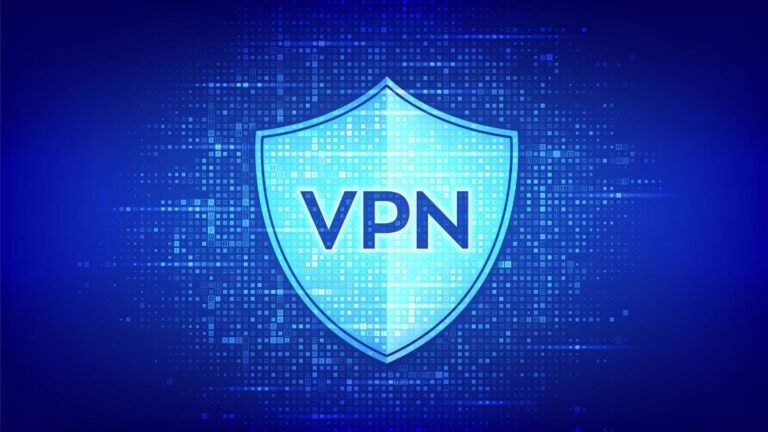
Best VPNs for Linux – Linux users also argue that VPN solutions for it are quite difficult to use seamlessly as they are for Windows or MacOS. Most VPN providers do not even consider Linux support, and provide either simple command-line utilities or out-of-date configuration instructions. However, there are some VPNs that have put their effort in creating steady, well-documented and privacy-focused solutions which integrate perfectly with popular distributions. In this review, we will be showing the best VPNs for Linux in 2026, making a comparison based on performance, privacy, usability, and value.
What Makes a Great Linux VPN
A good VPN for Linux will not just be about making compatibility. It should have native support, methodically as command-line interface, or, preferably, graphical user interface (GUI). Flexibility in protocols – Both OpenVPN and WireGuard are flexible protocols to make it possible to achieve security and speed. Performance stability, no-log policies and advanced privacy features like kill switches and DNS leak protection are very important. Lastly, the functionality is a huge factor. It is true that there is a tendency for Linux users to be relatively tech savvy, however, not everyone feels like spending hours setting commands at the terminal. The best linux VPN’s are a combination of both technical prowess and the regular ease of use.
NordVPN – Best Overall for Linux Users
The winner in case of Linux users would be NordVPN. Noted for having a robust security architecture and great performance in terms of speed, it features a native port for Linux, which is compatible with major distributions including Ubuntu, Debian and Fedora. The VPN uses its own custom VPN protocol called NordLynx, that is build on top of WireGuard and offers more and more stable connections without giving up on standards of encryption. NordVPN also boasts of privacy features such as kill switch, double VPN routing and Onion over VPN, which sends data through Tor network further anonymous.
What really stands out about NordVPN is a no-logs policy that is audited, and the fact that they are located in Panama, out of reach of an alliance of countries with data sharing agreements. But, just because there is no GUI in the Linux version, the commands on the terminal are very easy to use and the process only takes a few minutes to setup. To people who require reliability, performance and privacy equally, nevertheless, NordVPN is identified and strongly recommended.
Surfshark – Easiest GUI Option for Linux
Surfshark is an interesting concept in the sense that it is one of the few VPNs with a full graphical interface to Linux. This is the reason those users that prefer a visual dashboard instead of the command line can use it. Its intuitive GUI provides the user the option of switching servers, turning settings on and off and managing connections at the click of a button. Surfshark’s feature list is quite generous – it doesn’t have a limit on the number of devices, it has modern protocols such as WireGuard and OpenVPN protocols, and CleanWeb, ad and tracker blocker, which works additionally safe when you are doing your surfing.
In terms of performance, Surfshark is doing just fine, although on more distant servers it is bound to experience some minor speed fluctuations. Its zero-logs policy, high encryption and 30-day money-back guarantee add to the level of privacy. With its effortless features and user-friendly aspects, Surfshark has been able to become one of the best Linux VPN to use for those who want a hassle-free and trouble-free experience without any command line headache.
Private Internet Access (PIA) – Feature-Rich with Full Linux GUI
Private Internet Access Network or PIA has been noted to be famous among the Linux enthusiasts for its transparency and flexibility. Unlike a lot of VPNs, PIA offers up a fully working GUI client for Linux that is not too different than the client provided for Windows users. This is a major plus because it is especially great for those who are new to the platform. Split Tunneling, Multi-protocol VPN, ad-blocking features and tunable encryption levels are all advanced features of the app.
PIA has a vast network all over the world that provides stable size of speed to stream and download the torrents. However, the upload speed may differ depending on the server. Though concerns have been raised by some privacy advocates about the own of PIA by Kape Technologies, the company’s client being open source and being regularly audited helps in keeping the user’s confidence in the service. PIA is an attractive option for Linux users that would rather have all the tools they need in one package and have easy access to them.
Proton VPN – Best for Privacy Purists
For those who ensure that privacy comes before everything else, Proton VPN is quite a count to reckon with. Created by the same people that made Protonmail, this VPN has the same values in terms of open source and transparency on security. Its Linux app is both GUI and CLI mode which is appealing to all kind of users. Proton VPN – it is a VPN that is known for the great encryption technology, Secure Core servers (that also protect from DNS leaks) also that includes the ability to route the traffic through a privacy-friendly countries.
The service also offers a free tier, albeit a limited one, so it is a safe way for Linux users to try it out. However, the free plan will have restrictions with what servers you can access as well as streaming. Not quite as easy to set up as its competitors just yet but once you get things up and running, Proton VPN does its job absolutely perfectly and turns out to be as reliable as you can expect it to be. Those who have been using and supporting open source and those who have no intention to give an inch towards any security breach Proton ppc is still a good fit.
Mullvad and AirVPN – For Advanced Users
Mullvad and AirVPN caters to people that want to be in as much control – and the least track – situations as possible. At least, it is very popular with the Linux community due to its strict no-logs policy as well as its anonymous accounts policy – users don’t even need to supply an email address. One can pay in fiat or even crypto and it supports its privacy first ethos. For this has a stable Linux client which is very efficient and regularly updated and both has GUI’s s and CLI options.
AirVPN on the other hand is the one, who is built by people who stand for privacy, for the power users. It supports such advanced configurations as port forwarding, Tor over VPN and OpenVPN over SSH. It is a bit complicated to use, but it is perfect for people who want a granular control over their experience during a VPN. While both Mullvad and AirVPN are the most privacy- and transparency-focused of all VPNs, they require a little bit more technical confidence.
Conclusion
Choosing the right VPN for Linux is simply a matter of your needs – ease of use, speed or complete control of privacy. NordVPN is still the best overall and can produce some great performance and have some great security measures. Surfshark is great for those users who like to have a clean GUI and do not mind if it is an easy configuration. Private Internet Access is not only an all-inclusive experience, but a highly customizable one, as well. Proton VPN is favorite of privacy junkies; Mullvad & AirVPN are favourites of Linux users that like transparency and control.
Also Read: Best VPN On Mac: Top Reliable Software



